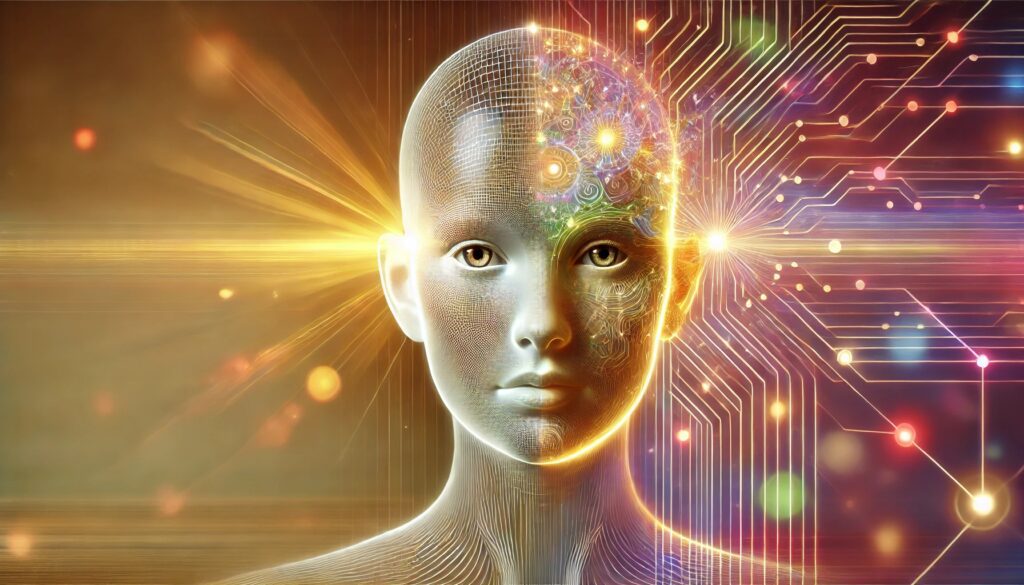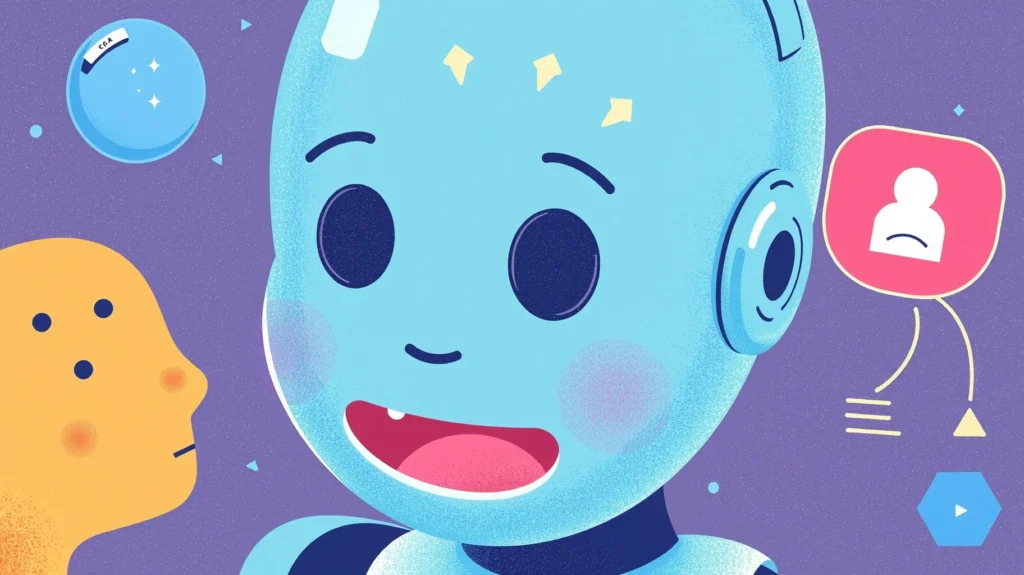
As gaming evolves, so do player expectations. Gamers no longer want to face just challenging opponents—they crave interactions that feel dynamic, intelligent, and even emotionally responsive.
Could reinforcement learning (RL) be the key to making gaming AI feel more human, reactive not just to the player’s moves but also their emotions? Let’s explore how RL could revolutionize AI, making it emotionally aware and capable of human-like interactions.
What is Reinforcement Learning? A Quick Overview
At its core, reinforcement learning (RL) is a type of machine learning where an agent learns to make decisions by interacting with its environment. The AI receives rewards or penalties based on its actions, encouraging it to adopt strategies that maximize long-term success. Think of it like training a dog: reward good behavior, punish bad behavior, and over time, the dog learns what’s expected.
In the context of gaming, RL has already been applied to improve non-playable characters’ (NPCs) behavior, making them adapt to the player’s actions. Instead of following a fixed script, NPCs trained with RL learn strategies to outsmart the player dynamically, improving their performance the more they play. But can this be extended to emotional responses?
From Intelligent to Emotionally Intelligent AI
In traditional games, AI-controlled characters react based on hard-coded rules. If you shoot an enemy, it fights back. If you solve a puzzle, the game advances. However, these reactions lack emotional depth. You can predict how most in-game characters will act, which diminishes the sense of immersion.
But what if NPCs could read the player’s emotional state and respond accordingly? Emotionally intelligent AI would adjust not just to the player’s skill level but also to their emotional cues—frustration, joy, or calmness. By incorporating affective computing (detecting emotions via player actions or inputs) with reinforcement learning, NPCs could adapt their behavior to create a more personalized, empathetic gaming experience.
Reinforcement Learning Meets Affective Computing: The Perfect Pair?
The combination of reinforcement learning and affective computing could bring emotionally responsive AI to life. Here’s how the two could work together:
- Emotion Detection: Affective computing algorithms could analyze player behavior to detect emotional states. This might involve interpreting patterns in the player’s movements, in-game choices, or even through biometric sensors (heart rate, facial recognition).
- Emotional Rewards and Penalties: In a reinforcement learning framework, AI could be trained to recognize specific emotional cues. If the AI senses frustration in a player, it might back off to avoid overwhelming them, receiving a positive reward for calming the player down. Conversely, if it detects that the player is enjoying a challenge, the AI might ramp up the difficulty.
- Behavioral Adaptation: Over time, emotionally responsive AI could fine-tune its behavior to suit a player’s emotional patterns, balancing between creating a fun challenge and fostering positive emotional experiences.
This kind of emotionally responsive adaptive AI could provide more satisfying and immersive experiences, evolving with the player’s emotional journey through a game.
Current Applications: AI Companions That Care
While emotionally responsive AI is still in its early stages, there are games that offer hints of what’s possible when AI adapts to emotions.
Take The Sims, for example. In this game, AI-controlled Sims respond to in-game events based on emotional states like happiness, anger, or sadness. While not powered by reinforcement learning, this system shows how emotional states can create deeper character interactions.
More advanced examples come from AI-driven virtual companions in games like Detroit: Become Human. Characters in this game remember past interactions with the player and adjust their behavior based on prior choices, creating the illusion of emotional responsiveness. However, these reactions are pre-programmed, not learned through RL.
In the future, emotionally responsive AI could go beyond simple emotional states and evolve alongside the player, offering richer, more complex interactions. Imagine an AI partner in a game that comforts you when you lose, encourages you when you’re stuck, or even challenges you when you’re breezing through levels.
Challenges: Can AI Really Feel?

There’s a critical distinction between emotion recognition and emotion simulation. Even with reinforcement learning and affective computing, AI cannot genuinely “feel” emotions. Instead, it simulates emotional responses based on detected cues. While this can make AI seem more human-like, it raises questions about authenticity.
Moreover, achieving true emotional responsiveness would require massive datasets to train the AI on a variety of emotional patterns. Even more, AI would need to generalize across diverse player personalities. Could a model that works for one player effectively adapt to another with a completely different emotional landscape? These are significant challenges that the gaming industry will need to address as it pushes the boundaries of AI.
Reinforcement Learning as the Future of Immersive Gaming AI
Despite these challenges, reinforcement learning holds incredible potential for enhancing emotional depth in gaming AI. By learning from players’ emotional states and continuously adapting its behavior, AI can evolve into something far more interactive and personal than today’s pre-programmed, static characters.
Imagine a future where gaming AI reacts dynamically not just to your actions, but to how you feel about those actions. Reinforcement learning could make gaming experiences more emotionally rewarding, leaving players with a deeper connection to the characters and worlds they interact with. This would create immersive, human-like AI that doesn’t just play against you, but plays with you, evolving based on your emotional journey.
So, will reinforcement learning make AI more human? Maybe not in the literal sense, but it’s certainly poised to make gaming AI feel more alive, reactive, and deeply connected to the player’s experience. And that might be just the thing to make the virtual worlds of tomorrow as emotionally engaging as real life.
Here are some excellent resources to help you dive deeper into the intersection of emotionally responsive AI and reinforcement learning in gaming. These include tutorials, papers, libraries, and videos to give you a well-rounded understanding of the topic.
Documentation and Libraries
- OpenAI Reinforcement Learning Library
OpenAI provides a set of tools and libraries that can help you implement and experiment with reinforcement learning, especially in game environments.
Link: OpenAI Gym
Recommended for: Building and testing RL models in various environments, including games. - DeepMind Research on AI and Reinforcement Learning
DeepMind, known for its work on RL with AlphaGo, has plenty of research papers and tutorials on how reinforcement learning can be applied to games and dynamic environments.
Link: DeepMind Research
Recommended for: Advanced understanding of cutting-edge RL techniques. - Unity ML-Agents Toolkit
Unity’s ML-Agents Toolkit allows game developers to integrate RL agents into their games. You can train AI to respond to player actions and even to emotional cues by adjusting reward functions.
Link: Unity ML-Agents
Recommended for: Hands-on projects integrating RL into game design.
Courses and Tutorials
- Emotion AI (Affective Computing) in Games (Coursera)
This course covers how affective computing can be integrated into AI systems, including game environments. Learn about techniques for detecting player emotions and how to adapt gameplay dynamically.
Link: Emotion AI in Games
Recommended for: Developers interested in creating emotionally responsive game AI. - Deep Reinforcement Learning Specialization (Coursera)
This specialization, taught by DeepLearning.AI, provides an in-depth look at deep reinforcement learning (RL), covering advanced topics like Q-learning and policy gradient methods, all of which can be used to develop sophisticated, emotionally responsive game AI.
Link: Deep RL Specialization
Recommended for: Anyone wanting to learn how RL can apply to real-world gaming environments.
Research Papers
- Emotion Recognition for Affective Gaming: From Concepts to Applications
This paper delves into how emotion detection in games can be applied using AI and RL models. It explores frameworks and methods for detecting player emotions and how games can adjust in response to emotional states.
Link: Emotion Recognition for Gaming
Recommended for: Understanding the scientific background of emotional AI in gaming. - Mastering Atari, Go, Chess and Shogi by Planning with a Learned Model
Although not directly about emotional AI, this paper by DeepMind outlines how reinforcement learning can teach AI to master complex games, which can be extended into emotional intelligence by adapting AI based on player responses.
Link: DeepMind’s Atari Paper
Recommended for: Insights into how RL can be applied to games at a high level.
Interactive Resources
- Kaggle: Reinforcement Learning Projects
Kaggle provides several RL projects and challenges, allowing you to practice coding RL algorithms in various game environments. Some projects focus on emotion-based AI interactions, where models learn to adjust their behavior based on inputs that mimic emotional cues.
Link: Kaggle RL Projects
Recommended for: Hands-on practice with reinforcement learning and emotional models. - DeepMind Lab
DeepMind Lab is a 3D environment specifically designed for AI agents trained through reinforcement learning. You can tweak the environment to simulate emotional feedback and explore how agents react to player-driven changes in mood or stress levels.
Link: DeepMind Lab
Recommended for: Exploring complex, emotion-rich AI environments.